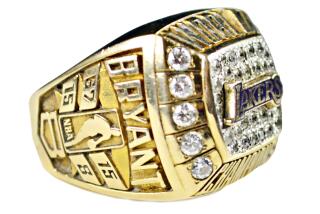Questions for EBay follow failed auction
- Share via
It was a story that garnered attention around the world.
The crypt above Marilyn Monroe’s had sold for more than $4.6 million on EBay. When it came time to collect, though, the deal fell apart. The winning bidder, from Japan, backed out. But because 11 other bidders had offered at least $4.5 million, certainly one of them would come through.
None did. No one even tried to make a low-ball offer at the $500,000 minimum. “They were all phony balonies,” said Elsie Poncher, who was selling the crypt that holds the remains of her husband, Richard.
What made Poncher’s crypt at Pierce Bros. Westwood Village Memorial Park even more glamorous was that her husband had bought it decades ago from baseball great Joe DiMaggio, who was divorced from the actress.
Poncher, who wanted to use the proceeds to pay off her mortgage, didn’t seem upset by the failed auction.
“You’ve got to take the good with the bad,” she said.
But what happened, according to Poncher’s representative, is that although EBay said it was checking the bids to make sure they were legitimate, the company didn’t tell him about a more elaborate procedure that could have ferreted out the fake bids.
EBay would not answer questions about the auction.
But Usher Lieberman, a spokesman for the Internet auction company, sent The Times an e-mail last week, saying: “For high-profile auctions such as these, our strong recommendation is that sellers contact EBay prior to listing the item as we can help them establish a process for pre-approving bids.”
The e-mail said the company uses this system “to successfully sell high-profile items, including an annual charity fundraiser of a lunch with Warren Buffett, which consistently sells for several million dollars.”
Steve Miller, the mortgage broker and banker who represented Poncher, said that option was never offered to them.
Miller listed the crypt on EBay on Aug. 14, starting the bidding at $500,000.
The listing quickly grabbed the attention of EBay officials, and Miller said he received a call from company executives who wanted to verify that he was the person selling it. The EBay representative said she had called the cemetery to ensure that the crypt could be sold.
Miller said she told him that EBay had a service for expensive items that vetted bidders to make sure they could pay for the item. “She was sort of vague,” Miller said. “I said, ‘Great, I really want that.’ ”
During the bidding process, Miller said, he noticed that some offers were being disqualified. “I figured they were doing their job,” he said.
When he asked the representative how the company evaluated those bidders, she said EBay called them and asked if they were serious bidders and told them they would get thrown off the auction site if they were submitting phony offers.
Miller had been told that the most frantic bidding takes place in the last few hours. “I asked how are you going to validate those people?,” he said. “I never got an answer.”
When the bidding ended, and it became clear the offers were bogus, EBay representatives told Miller they wanted to re-list the crypt.
Miller said that when he asked how they would ensure bidders were legitimate, EBay officials told him they had “an outside auction house that checks people’s financials and does a lot more intense investigation to qualify the bidders.” They also talked of requiring people to make deposits through PayPal, so that in the event they won the auction and decided not to take the crypt, they would forfeit their deposit.
Miller said EBay representatives asked if the service had been offered to him when he listed the crypt the first time. He told them no.
Poncher said she wasn’t sure what she was going to do next.
With the publicity around the auction, Miller said two other people contacted him to sell their crypts. He declined.
One woman whose husband and son are in a crypt in the same mausoleum as Monroe read about the Poncher auction and decided to try to sell hers. “It never dawned on me to do that,” Sally Ihnat Marshall said. “What a clever idea.”
Her husband, actor Steven Inhat, died in 1972. Her son Stefan died five years ago.
Marshall, 67, put the crypt up for bid for $250,000. She said she hoped to use the money to finance a move to North Carolina, where her daughter and grandson live.
The crypt was listed for a week. She didn’t get any bids.
“I didn’t have high hopes,” she said. “I just thought, wouldn’t it be nice.”
--
More to Read
Inside the business of entertainment
The Wide Shot brings you news, analysis and insights on everything from streaming wars to production — and what it all means for the future.
You may occasionally receive promotional content from the Los Angeles Times.











